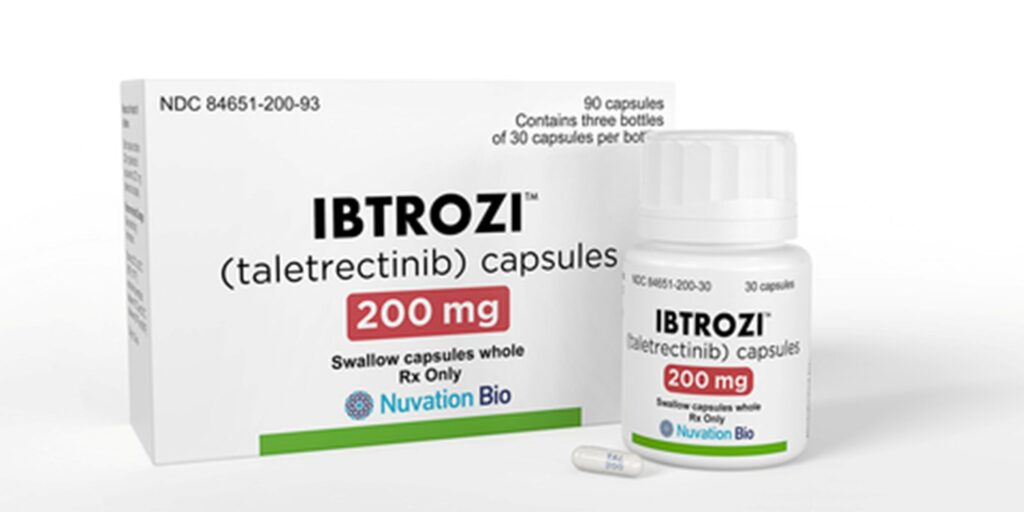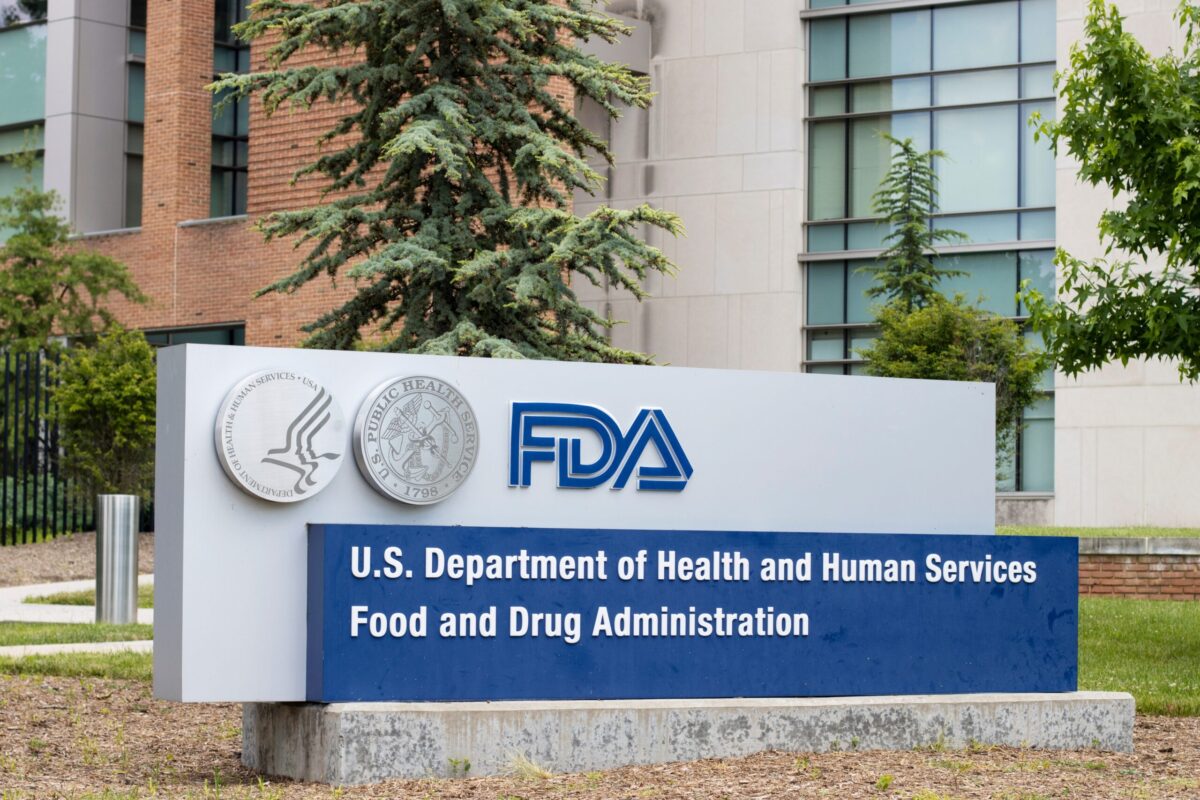The FDA has approved Ibtrozi (taletrectinib) for the treatment of adults with locally advanced or metastatic ROS1-positive non-small cell lung cancer (NSCLC).
Developed by Nuvation Bio, taletrectinib is a next-generation oral tyrosine kinase inhibitor (TKI) designed to target cancers driven by ROS1 gene fusions.
The fusions are more common in younger patients and those who have never smoked, and are frequently associated with brain metastases.
According to Nuvation, approximately 3,000 new ROS1-positive NSCLC cases are diagnosed each year in the US.
Worldwide, over 1 million people annually are diagnosed with NSCLC, the most prevalent type of lung cancer. Around 2% of these cases involve ROS1-positive disease. Among patients newly diagnosed with metastatic ROS1-positive NSCLC, approximately 35% present with brain metastases. The brain is the most common site of progression, affecting about 50% of previously treated patients.
Ibtrozi’s approval comes nine years after Nuvation’s founder, president and CEO, David Hung, MD, sold Medivation to Pfizer for $14 billion.
Now Ibtrozi will be competing directly with the lead asset of that deal — Pfizer’s first-generation TKI Xalkori (crizotinib). However, the drug has been losing ground to Bristol Myers Squibb’s Augtyro (repotrectinib) and Roche’s Rozlytrek (entrectinib), which currently dominate in the lung cancer space.
XTALKS WEBINAR: Oncology Clinical Development: Optimizing Value Through Implementation of a Patient-Centric, Holistic Endpoint Strategy
Live and On-Demand: Wednesday, June 25, 2025, at 11am EDT (4pm BST/UK)
Register for this free webinar to gain insight into complying with the latest FDA guidance on oncology patient-reported outcomes.
“The FDA approval of Ibtrozi marks a major milestone in the evolution of targeted therapy for advanced ROS1-positive NSCLC,” said Dr. Hung.
“With its clinically proven efficacy and safety profile, we believe Ibtrozi has the potential to become a new standard for what targeted therapies can achieve in this type of lung cancer.”
The FDA approval was based on results from the single-arm Phase II Trust-I and Trust-II clinical trials, which assessed the safety and efficacy of taletrectinib in both treatment-naïve and previously treated patients. The trials enrolled 300 patients (173 in the China-based Trust-I trial and 164 in the global Trust-II study), making it one of the largest global clinical programs to date for ROS1-positive NSCLC, according to Nuvation.
Among patients who had never received a ROS1-targeted therapy, the confirmed overall response rate (cORR) was nearly 90% in the Trust-1 trial and 85% in Trust-II.
In Trust-I, with a median response follow-up of 40 months, the longest duration of response (DOR) reached 46.9 months and was still ongoing. In Trust-II, the longest ongoing DOR was 30.4 months, based on a 19-month median follow-up as of October 2024.
Due to the single-arm design of the trials, median progression-free survival (PFS) is not included in the label.
Brain metastases are among the most common and devastating complications in advanced ROS1-positive NSCLC.
A distinguishing feature of taletrectinib is its ability to cross the blood-brain barrier, offering meaningful protection against central nervous system (CNS) progression. An intracranial response was achieved in 73% of TKI-naïve patients (11/15) and 63% of TKI-pretreated patients (15/24).
Patients who had previously been treated with other ROS1 inhibitors also benefited from taletrectinib. In this group of patients, Ibtrozi led to a cORR of 52% and a median DOR of 13.2 months, with a median follow-up of 33 months.
In the Trust-II trial, taletrectinib led to a cORR of 62%, and as of October 202, a median DOR of 19.4 months, with a median follow-up for responses of 19 months.
Intracranial response rates remained high in this cohort as well, at about 65.6%.
In contrast, Ibtrozi’s label carries no CNS safety warnings, a distinction Dr. Hung attributes to its higher selectivity for ROS1 over the neurotrophic receptor TRKB.
However, the label does include a warning for QTc interval prolongation, a type of abnormal heart rhythm, which is not listed on Augtyro’s label.
“Ibtrozi’s durability of response and ability to effectively penetrate the brain, coupled with a well-characterized and manageable safety profile, further addresses these critical needs for patients. I believe this now-approved therapy offers providers and patients a promising new option for the treatment of advanced ROS1-positive NSCLC,” said Nathan Pennell, MD, PhD, TRUST study investigator and professor of Medicine at the Cleveland Clinic.
Related: Taletrectinib Extends Cancer-Free Time With Fewer Neurological Side Effects in NSCLC Patients
Taletrectinib received several special FDA designations prior to its approval, including Breakthrough Therapy, Priority Review and Orphan Drug status.
It was also approved in China earlier this year.
With a price tag of approximately $29,500 per month, Ibtrozi enters a competitive field. However, its superior intracranial efficacy and favorable safety profile could set it apart.
Dr. Hung told Fierce Pharma that in addition to challenges with efficacy and tolerability, a key logistical barrier has hindered the growth of the ROS1 market: patients with NSCLC are often started on PD-1/chemo before genetic test results confirm ROS1 positivity. By the time results arrive, many choose to stay on their initial regimen. Dr. Hung attributed this to outdated National Comprehensive Cancer Network (NCCN) guidelines that allowed both PD-1/chemo and TKI use.
However, a January update now lists immunotherapy as contraindicated for ROS1-positive NSCLC — a shift Hung sees as a tailwind for Ibtrozi’s launch.
Looking ahead, Nuvation Bio has launched a Phase III head-to-head trial comparing taletrectinib with crizotinib as a first-line therapy.
Nuvation acquired rights to Ibtrozi outside of China, Japan and Korea last year through its all-stock acquisition of AnHeart Therapeutics, which had previously licensed the TKI from Daiichi Sankyo.
Dr. Hung said that in addition to the approvals in the US and China, Nuvation has additional global filings underway.
In November, Jefferies analysts projected that Ibtrozi could surpass $1 billion in peak sales. They cited its potential for long-term use if patients remain progression-free for around four years and the drug continues to demonstrate good tolerability.












Join or login to leave a comment
JOIN LOGIN